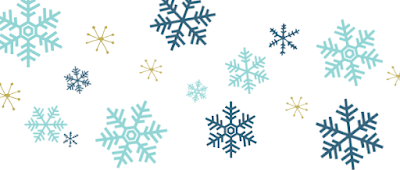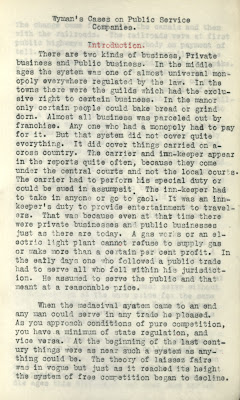News from the Stefan A. Riesenfeld Rare Books Research Center at the University of Minnesota Law Library
Pages
Thursday, December 7, 2023
Finals Study Break: Tuesday, December 12!
Friday, December 1, 2023
New Darrow Acquisitions & Darrow’s Library
The Riesenfeld Center has recently acquired several new items relating to Clarence Darrow’s interests and career, as well as those of his wife, Ruby. These items join the Law Library’s Darrow collection, which includes more than 1,000 letters, as well as books, speeches, debates, trial briefs and transcripts, and other material about Darrow and his noteworthy career and life. To learn more about Darrow, you can visit our award-winning digital research site, which makes available extensive material from our collection.
Two of the library’s newest acquisitions are pamphlets featuring some of Darrow’s work. The first, an issue of the leftist periodical The Debunker published in 1931, features Darrow’s essay, “Absurdities of the Bible.” Darrow, a known agnostic, delves into a handful of stories from the Bible, including the creation of Adam and the performing of several miracles. Darrow states that “I am an agnostic because I trust my reason…Anybody who can believe those old myths and fables isn’t governed by reason.”
Another new pamphlet to the collection relates to Benjamin Gitlow, a communist whose civil liberties Darrow defended in a noted ‘Red Scare’ trial in 1920. Gitlow, a member of the Labor Committee of the Communist Labor Party and a staffer for the left-wing magazine The Revolutionary Age, was tried under New York’s Criminal Anarchy Act of 1902. This was done on the grounds that the magazine’s printing of the Left Wing Manifesto constituted encouragement of the violent overthrow of the government. Darrow was hired as part of the defense team, and his speech in Gitlow’s defense is excerpted in this pamphlet. Ultimately, Gitlow was found guilty and sentenced to five to ten years of hard labor, being released in 1922 after successful appeals.
We have also acquired several books belonging to Darrow and members of his family. The first, Darrow’s wife Ruby’s copy of The Summing Up, by Somerset Maugham, connects to several letters in our collection, in which Ruby discusses Maugham, his books, and his relationship to Darrow. This copy features pasted-in newspaper clippings related to Maugham and penciled-in annotations by Ruby, showing her admiration for Maugham and proving this to be a well-read copy of his work. We also acquired two books belonging to Darrow’s son, Paul. The Seven Little Sisters Who Live on the Round Ball that Floats in the Air was a Christmas gift inscribed to Paul from Darrow in 1889, when Paul was six. The other, Sailor on Horseback, by Irving Stone, was inscribed to Paul and his wife with a note about Stone’s biography on Darrow that was to come: “I pledge myself to give everything I’ve got to make the Clarence Darrow biography at least as good as this book, and I hope a great deal better.”
Two other books with inscriptions to Darrow also join our collection. The Life and Adventures of Carl Laemmle, by John Drinkwater, includes a warm inscription written to Darrow by the author. Laemmle was an influential German-American film producer, who produced Mystery of Life (1931), a film about evolution, which Darrow narrated and appeared in. The Child You Used to Be was sent by the author, Leonora Pease, to Darrow. While most of our collection includes kind notes to Darrow, this one includes a criticism of Darrow’s novel, Farmington: “To Clarence Darrow--A man who wrote a human boy’s book, with allusions in it to little girls, all dressed up and sitting in a row like dolls or painted angels, I offer this c[h]ronicle of real ‘little girlhood.’”
This assortment of books joins our growing collection of materials owned by Darrow and members of his family. We are excited to have created a new collection designation for these materials, which allows for browsing the interests and relationships found through this associative ownership. All of these new acquisitions provide additional context and depth to what we know about Darrow’s beliefs, career, and relationships, viewed through the collection.
- Sophia Charbonneau, Special Collections Assistant
Monday, November 6, 2023
Thursday, November 9: Book Talk by Professor John Bessler on the Death Penalty
When: Thursday, November 9 at 4:00-5:00 p.m.
Sunday, October 29, 2023
Wednesday, November 1: Halloween Open House!
Stop by to see spooky treasures from our collection - including witch trials, murder trials, a macabre torture manual, and other sensational works - and pick up snacks, drinks, and Halloween candy!
When: Wednesday, Nov. 1st, 12 p.m - 3 p.m.
Where: Riesenfeld Rare Books Center
What: Spooky rare books, snacks, drinks, candy!
(The Center is in N30, on the subplaza past Student Orgs. in N20.)
Monday, September 25, 2023
New Exhibits Open House: Wednesday, September 27!
When: Wednesday, September 27, from 12 p.m. - 3 p.m.
Where: Riesenfeld Rare Books Research Center (N30, Subplaza level).
Cookies, brownies, bars, bagged snacks and drinks will be available!
New Law Library Exhibits: Celebrating the American Law Institute and Treasures of the Riesenfeld Center
Founded in 1923, the Institute has endeavored through its publications to reduce the uncertainty and complexity of American law and to improve the administration of justice. Its influential publications include the Restatements, Principles and Model Acts and Laws. These have provided useful guidance for generations of judges, lawyers, and legislators across many fields of American law.
Friday, September 15, 2023
Wednesday, September 20: Celebrate Constitution Day!
Come out and celebrate Constitution Day in the Law Library lobby!
Stop by and grab donuts and coffee on September 20, and pick up a crossword puzzle about the US Constitution for prizes.
Don't forget to take a selfie with James Madison!
When: Wednesday, September 20, 11 a.m. - 1 p.m.
Where: Law Library Lobby
What: Donuts, Coffee, and Prizes!

Wednesday, May 31, 2023
New Rare Acquisitions: The History of Legal Education
Saturday, April 15, 2023
Tuesday, April 18: Celebrate Clarence Darrow's Birthday!
Where: Law Library Lobby
What: Donuts, cake, coffee, and a quiz!
Sunday, April 2, 2023
Wednesday, April 5: Rare Books Open House!
Enjoy snacks and drinks, and see treasures from the library's rare books and special collections.
When: Wednesday, April 5, 12 p.m - 3 p.m.
Where: Riesenfeld Rare Books Research Center*
What: Rare books, bagged snacks and treats, and refreshments!
(*The Riesenfeld Center is in N30, on the subplaza past Student Orgs. in N20.)
Monday, March 13, 2023
West Publishing and the History of Westlaw
In the early 1970s, another revolution transformed the legal publishing industry and would have equally wide effects. In this revolution, too, West Publishing Company played a leading role. The "second revolution" centered on the more widespread introduction of computers and automated searchable databases. Minnesota itself had become a hotbed in the 1960s for computer development, and West did not fail to take notice. In 1974, West Publishing developed a computer system to search case headnotes across its reporters, entering the market with its technology in 1975. The product, familiar everywhere today as Westlaw, marked the beginning of one of the most successful commercial legal tools developed. In 1978, locked in competition with Mead Data Corp., Westlaw began to provide full-text search for cases. In 1979, dial-up access to the database was offered over phone lines to its customers. By the early to mid-1980s, Westlaw terminals and the services it offered were becoming increasingly indispensable to American legal consumers. The rest, again, was history. Today Westlaw features more than 40,000 databases of information and is available in numerous countries across the world.
Sunday, March 12, 2023
Wednesday, March 15: Rare Books Open House!
Enjoy snacks and drinks, and see treasures from the library's rare books and special collections.
When: Wednesday, March 15, 12 p.m - 3 p.m.
Where: Riesenfeld Rare Books Research Center*
What: Rare books, bagged snacks and treats, and refreshments!
(*The Riesenfeld Center is in N30, on the subplaza past Student Orgs. in N20.)
Friday, March 10, 2023
New Library Digital Exhibit: Law Books and the History of Legal Education
The University of Minnesota Law Library is pleased to announce the release of a new digital exhibit:
"Tools of the Profession: Law Books and the History of Legal Education"
The exhibit also showcases the reciprocal nature of legal literature and legal education. In England and on the continent, legal literature developed in response to and as a product of education. Literature in our own country has followed a similar path: even C. C. Langdell's famed "revolution" in legal education, still with us today, is first evident in his 1871 casebook on contracts. A selection of historical books illustrates transformative developments in legal education over several centuries.
An accompanying digital exhibit, "Legal Education at Minnesota," is drawn from the Law Library's rich archives. This exhibit highlights course books, lectures, exam prep material, and early exams that shed light on the history of legal education at the Law School. Selections from the Library's student notebook collection, in particular, reflect how students have engaged with the law through a tradition of dynamic classroom instruction.
The physical exhibit, on which the digital exhibit is based, will be open in the Riesenfeld Center through the spring semester. For more information about the exhibits, please contact Ryan Greenwood (rgreenwo@umn.edu, or 612-625-7323). The exhibits were curated by Ryan Greenwood, Pat Graybill, Lily Eisenthal, and Joy Brown.
Thursday, March 2, 2023
Legal History Prize: 2023 Morris L. Cohen Student Essay Competition
The Legal History and Rare Books (LH&RB) Section of the American Association of Law Libraries (AALL), in cooperation with Gale, a Cengage company, announces the Thirteenth Annual Morris L. Cohen Student Essay Competition. The competition is named in honor of Morris L. Cohen, late Professor Emeritus of Law at Yale Law School.
The competition is designed to encourage scholarship and to
acquaint students with the AALL and law librarianship, and is open to students
currently enrolled in accredited graduate programs in library science, law,
history, and related fields. Essays may be on any topic related to legal
history, rare law books, or legal archives. The winner will receive a $1,000.00
prize from Gale, a Cengage company, and will be invited to present their paper
to AALL members via webinar.
Winning and runner-up entries will be invited to submit their entries to UNBOUND:
A Review of Legal History and Rare Books, the official journal of
LH&RB. Past winning essays have gone on to be accepted by journals such as N.Y.U.
Law Review, American Journal of Legal History, University of South Florida Law
Review, William & Mary Journal of Women and the Law, the Yale
Journal of Law & the Humanities, and French Historical Review.
The entry form and instructions are available at the LH&RB website: www.aallnet.org/lhrbsis/awards-grants/. Entries must be submitted by 11:59 p.m., May 15, 2023 (EDT).
© Regents of the University of Minnesota. All rights reserved. Equal opportunity educator and employer.



















